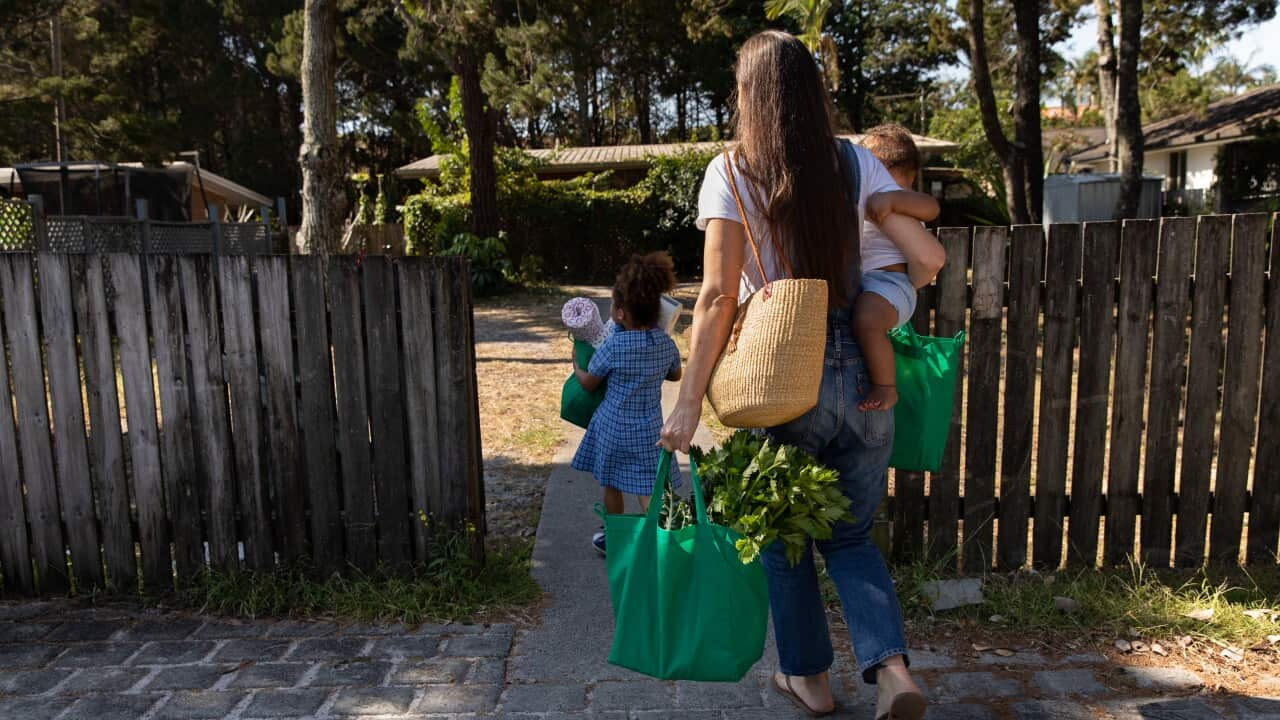Key Points
- Forty-one per cent of Australians feel financially insecure, a 10 per cent increase from 2021.
- Financial stress correlates with decreased trust in government, heightened pessimism, and reduced national pride.
- Renters and mortgage holders face heightened financial stress, reflecting higher interest rates and surging rents.
Australia's social cohesion is deteriorating with two in five Australians reporting acute money worries.
Elevated prices and the corresponding series of interest rate hikes are stretching household budgets thin, with 41 per cent of the 7,500 people surveyed by describing themselves as "poor" or struggling to get by.
This was up from 37 per cent in 2022, and 31 per cent in 2021.
The author of the annual report on social cohesion, Australian National University's James O'Donnell, said financial stress tended to go hand-in-hand with weaker social cohesion.
Those same people reported feeling less trusting of the government, more pessimistic about Australia's future, and less likely to feel a sense of national pride.
"It is significant - two in five are saying they are struggling," O'Donnell said.
Financial disadvantage was also linked with more negative attitudes to diversity, with people struggling to make ends meet 13 per cent less likely to believe accepting migrants from many different countries made Australia stronger.
Renters and mortgage holders were more likely to report financial stress compared to those who owned their homes outright, consistent with higher interest rates and surging rents.
"With more Australians under financial pressure in 2023, it’s perhaps not a surprise that our sense of worth and social inclusion are also lower this year," O'Donnell said.
Those feeling a "great sense" of belonging sunk to a record low of 48 per cent in 2023, with just 33 per cent taking "great pride" in Australia’s culture and way of life.
Respondents were also worried about economic inequality and fairness.
The number of people concerned about the gap between high and low incomes hit a record 84 per cent, up from 76 per cent in July 2020.
Non-economic matters, such as politically charged debates on local and international issues, have also strained social cohesion over the past year.
The survey was run in July, three months before the Indigenous Voice to Parliament referendum, and before renewed conflict in the Middle East.
There were some bright spots for national social cohesion, including multiculturalism - with the vast majority agreeing it's good for Australia.
But discrimination on the basis of skin colour, ethnic origin or religion remains consistent, affecting 18 per cent of respondents in 2023 - up from 16 per cent in 2022.



